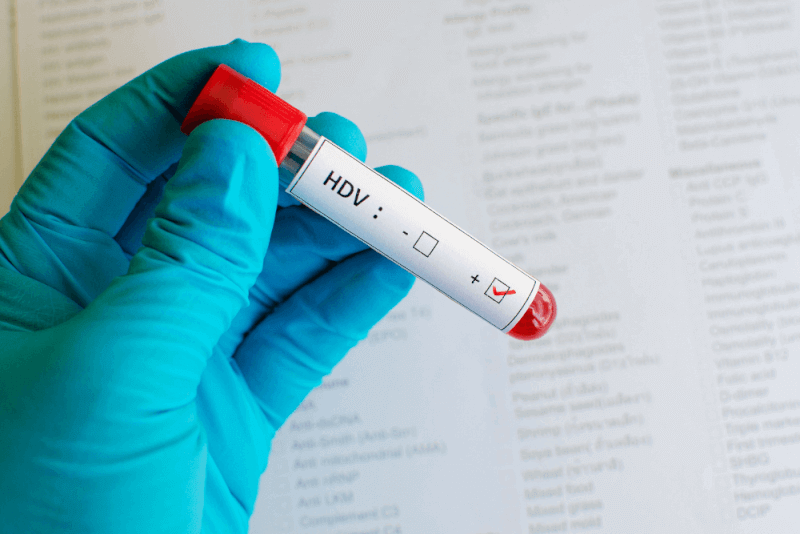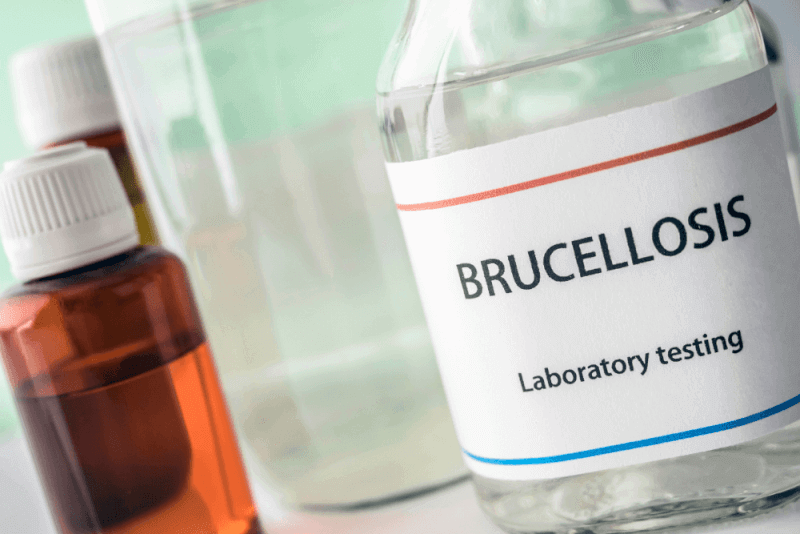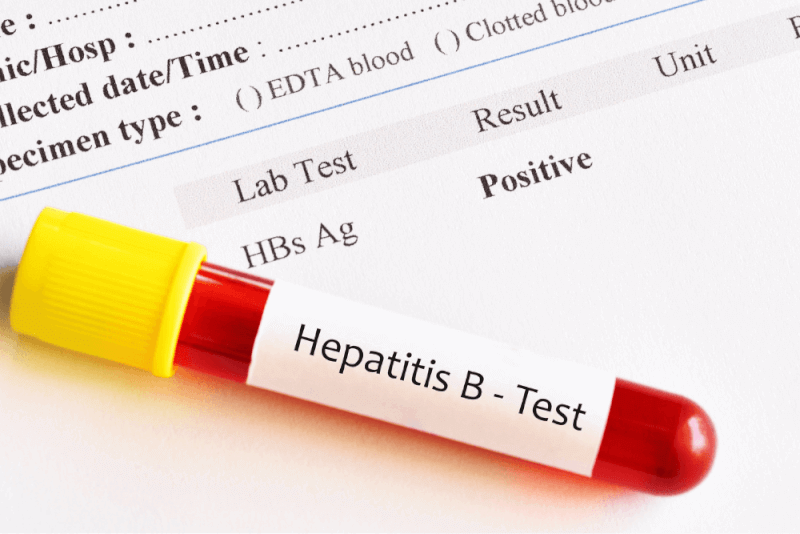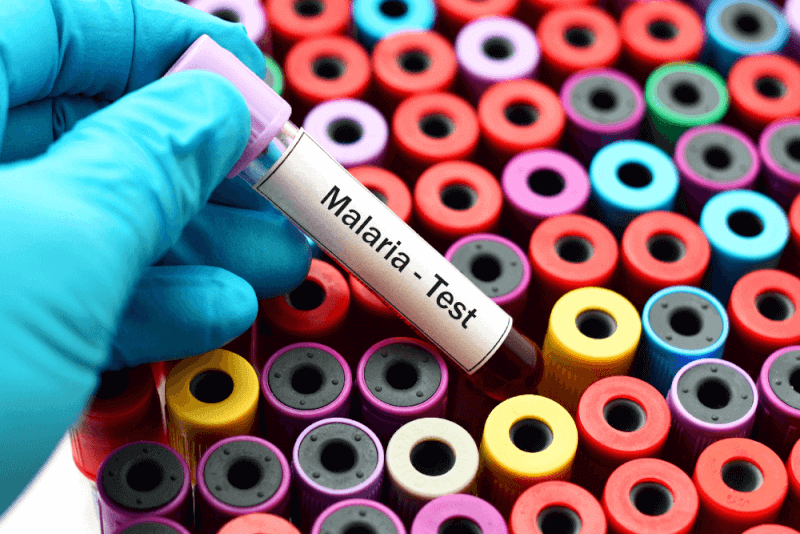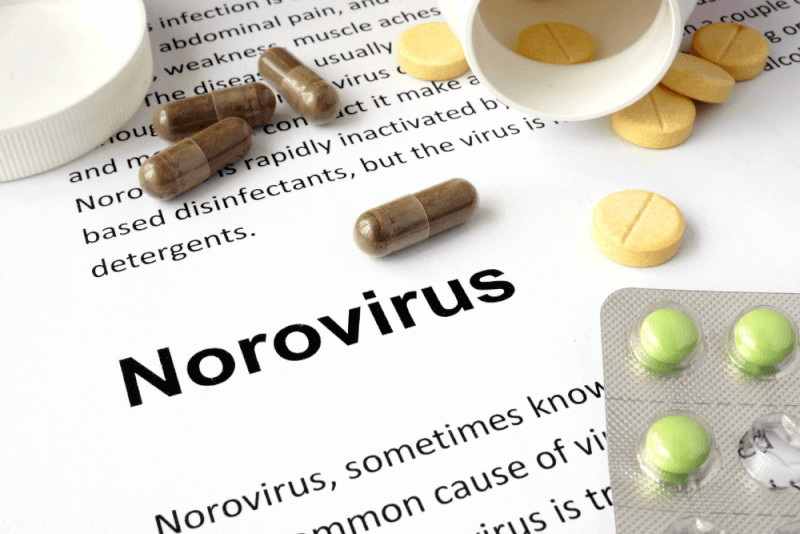30-Second Summary
- Hepatitis D is a viral infection that causes liver inflammation, but it cannot cause infection on its own.
- Hepatitis D infection can be either acute or chronic. Acute infection symptoms appear rapidly.
- Diagnosis of Hepatitis D primarily involves blood tests. Blood samples are examined in the laboratory to detect the hepatitis delta virus or antibodies produced against it.
- There is no specific cure for Hepatitis D. Acute Hepatitis D may resolve without any treatment.
What is Hepatitis D?
Hepatitis D is a viral infection that causes liver inflammation, but it cannot cause infection on its own. Therefore, it is observed either simultaneously with a Hepatitis B infection or after a person has been infected with Hepatitis B.
Hepatitis D infection can be either acute or chronic. Acute infection symptoms appear quickly and may last for several weeks or months. Over time, acute infection can become chronic, in which case symptoms may persist for more than 6 months.
Causes of Hepatitis D
The virus type that causes Hepatitis D is also known as the hepatitis delta virus or HDV. This virus causes Hepatitis D and needs the Hepatitis B virus to survive and replicate. Therefore, it can only infect a person who already has or has had a Hepatitis B infection.
Symptoms of Hepatitis D
Symptoms of Hepatitis D are similar to those of other types of hepatitis. These symptoms include:
- Fever
- Abdominal pain
- Nausea
- Vomiting
- Loss of appetite
- Dark-colored urine
- Pale or gray-colored stool
- Yellowing of the skin or eyes (jaundice)
In addition, Hepatitis D can worsen the symptoms of Hepatitis B.
Diagnosis Criteria for Hepatitis D
Diagnosis of Hepatitis D primarily involves blood tests. Blood samples taken from the patient are examined in a laboratory to look for the hepatitis delta virus or antibodies produced against it. Additionally, imaging methods such as abdominal ultrasound or elastography may be used to determine whether the virus has caused any damage to the liver.
Treatment Methods for Hepatitis D
There is no treatment method that can cure Hepatitis D. Acute Hepatitis D may resolve on its own without any treatment. For chronic Hepatitis D, the following treatment options may be recommended to help patients manage the condition:
Injections
Medications that strengthen the immune system may be administered by injection to help the body fight off infections.
Antiviral Medications
Some antiviral medications may be used in the treatment of Hepatitis D, though their use is not approved in all countries.
Liver Transplant
In cases where the liver is severely damaged due to the infection, a liver transplant may be necessary.
Hepatitis D Transmission Routes
Hepatitis D can be transmitted through contact with infected blood or body fluids. Transmission routes of Hepatitis D include:
- Vaginal, oral, or anal sexual intercourse
- Sharing equipment used for injecting drugs
- Accidental needle sticks
- It is rare, but an infected woman may transmit Hepatitis D to her baby during childbirth.
Hepatitis D Risk Factors
The risk of contracting Hepatitis D is higher in the following situations:
- Injecting drugs
- Having a sexual partner infected with HBV and HDV
- Living with someone who has HBV and HDV
- Carrying the HIV virus
- Men who have sex with men
- Working in healthcare or other sectors involving contact with body fluids
- Undergoing hemodialysis
Hepatitis D Prevention Methods
Getting vaccinated against Hepatitis B provides protection against both HBV and HDV. Currently, there is no vaccine that specifically protects against HDV.
If Hepatitis B exposure is suspected, hepatitis B immune globulin treatment should be administered to prevent infection. People with Hepatitis B should take the following precautions to avoid superinfection with HDV:
- Wearing sterile gloves when in contact with infected blood, wound discharge, or other body fluids
- Not sharing needles or other equipment used for injecting drugs
- Not sharing personal items
- Using condoms during all types of sexual intercourse
- Taking antiviral medications for Hepatitis B if recommended by a doctor
Pregnant individuals with Hepatitis B can reduce the risk of passing the infection to their baby by having the Hepatitis B vaccine administered shortly after birth.
What Diseases Can Hepatitis D Cause?
Complications of Hepatitis D may include:
- Liver scarring (fibrosis or cirrhosis)
- Liver failure
- Hepatocellular carcinoma (a type of liver cancer)
Precautions for Hepatitis D Patients
If you have Hepatitis D, certain precautions should be taken to reduce the risk of liver damage. These include:
- Avoiding alcohol, as it is processed by the liver
- Refraining from smoking
- Maintaining a healthy weight
- Learning which foods to consume and avoid to protect liver health, and following an appropriate diet
- Consulting a doctor before using over-the-counter medications
- Keeping up with regular medical check-ups
When to Seek Emergency Medical Attention
Hepatitis D patients should go to the emergency room if they experience any of the following symptoms:
- Severe abdominal pain
- Severe vomiting or inability to keep anything down
- Vomiting blood
- Vomiting with a coffee-ground appearance
- Jaundice
- Confusion
- Changes in mental status
- Dark-colored urine
- Decreased urine output
- Gray or pale stools


